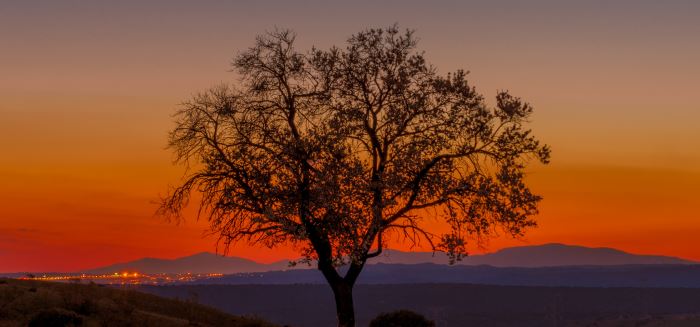When I was in seminary, I was required to take an “Alternative Context” course. At the time, we had programs deep in the Appalachian Mountains, and as far away as the Czech Republic. The point of studying off-campus, however, was not to teach the people we encountered about what we knew about God, but to learn about what God was doing in their midst. With that discovery, we were to return to ministry in our normal context. In Elizabeth Hagan’s post today, she shares how her experience away reframed her stewardship leadership in her congregation. How has God’s action beyond your community changed your approach to ministry at home?
Yours truly,
Adam J. Copeland, Director
Center for Stewardship Leaders
Luther Seminary
What the Global Church Can Teach Us About Stewardship (Part 1)
Elizabeth Hagen
The congregation before me reclined on the blankets instead of pews, talked loud instead of using a PA system and handed out no bulletins announcing the order of worship. But the worship I’d just experienced in Kenya moved me to tears on several occasions. I’d never seen a group praise God with such joy or offer blessing prayers for the sick with such sincerity.
After a couple of hours, I thought the service was over, but then I was invited to the makeshift altar, handed a cake knife and motioned to cut.
I didn’t think twice about cutting the cake into pieces that filled a napkin. Doesn’t everyone want a big piece? I assumed there would be more cakes waiting somewhere.
But soon I heard: “No, this not how you do it, in Kenya” from Margaret, one of the elders.
She moved toward me, placing her hands on top of mine. Then, together we swiftly chopped the yellow cake with white icing into small bite sized chunks, filling twelve small plates. From this 11 x 7 cake, we were about to feed 300 men, women and children.
Soon the pastor offered a prayer and then Margaret gave us all a mini-sermon.
If you think about the ingredients that go into making a cake: the eggs, the flour, the sugar, the water, you realize that none of these elements are very good if at all on their own. But when you mix them together, adding just the right amounts (and no more than is needed), you get a sweet dessert. You get something that tastes good that all people can enjoy.
In the same way, all of us today are a part of a larger family. We who are many believe that our fellowship is better and sweeter when it is shared. Let this cake today be an experience of what it means to be a part of God’s family.
And moments later, I helped the other elders pass out the chunks of cake. We ate together till every crumb was gone. I have to tell you, it was some of the most soul-filling dessert I’d ever tasted in my life.
I was schooled in “communion” with cake, Kenyan style.
Days later when I returned from my trip, first up on the agenda at church was our annual stewardship drive.
Like most American churches seeking to recover and find hope from years of decline, we felt fear when it came to budget time.
We’d not be able to do everything we wanted like we wanted.
There were cuts to the mission budget, talks of layoffs and discussions about re-using the children’s Sunday School material from the year before.
As their pastor, I could see the look of disappointment and despair, even in the eyes of my most optimist leaders.
This was not how they wanted to do church. This was not how they liked to do church.
But, I couldn’t help to stop and talk to my leaders about the new Kenyan friends I’d made and what made their worshipping community come together so well.
We had pews to sit in on Sunday mornings, really nice altar candles and pretty envelopes for our checks, but did these things bring us the sweetness we all craved?
Maybe we, as the members who brought the “water” the “flour” and “sugar” to community each week could re-focus our efforts on what we had—not what we didn’t?
Maybe it was ok, we were doing less of this and that like we used to do?
Maybe, our fellowship would be just as faithful to the work of Christ, if not more?
And several weeks later, this is where the church leaders and I landed as we presented the budget to the congregation: sometimes the best stewardship is learning that getting back to the basics is best.
Faithful discipleship can come from the meeting and the mixing of the community.
We don’t all need extra large pieces of the cake.
Read What the Global Church Can Teach Us About Stewardship (Part 2)
Author
Rev. Elizabeth Hagan is an American Baptist minister who serves congregations through short-term pastorates, retreat leadership and online conversation over at her blog, Preacher on the Plaza. Elizabeth’s home base is Arlington, Virginia, but she’s a nomad willing to spend time anywhere where’s there’s an invitation to preach, friends, and hopefully strong wifi.

